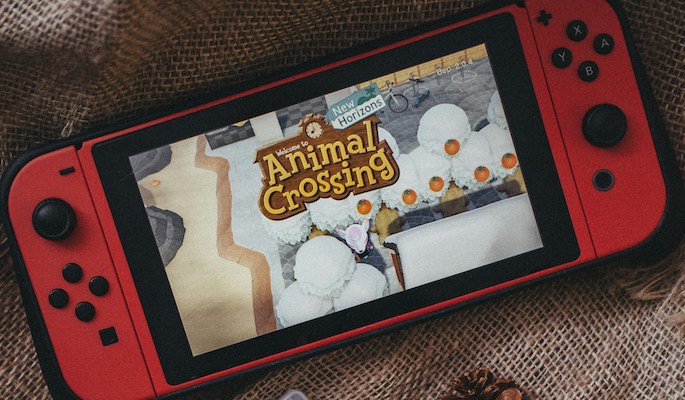
I’ve been an avid Animal Crossing player since the early 2000s when the game first came out on Nintendo GameCube in the United States. There was only one game at the time, but the franchise quickly spawned several iterations. With each new game came new features, and as the game gained traction, it fostered fandoms across the world. Then, during the pandemic, the Switch version, “New Horizons,” was one of the best-selling games on the entire platform.
While Animal Crossing was a game I loved as a kid, it’s still a game I love today. And it’s not just me. Animal Crossing has more than a cult following—it’s become a cultural phenomenon. So, why are so many people playing this game—children and adults alike?
The fact is this: Animal Crossing imitates an idealized version of real life.
In the game, the main goal (or encouragement) for players is to buy a house. Just like reality, you have to work to pay off your home loans. However, a friendly raccoon landlord named Tom Nook makes the entire experience far more enjoyable than a real-life landlord. Tom Nook is generous—he deadlines to pay off loans, won’t kick you out of your house if you don’t pay your debt, and even offers to expand your home after you pay off your first loans.
Somehow, Animal Crossing makes even the most tedious chores enjoyable and picturesque.
Shopping is another fun, idealized aspect of Animal Crossing. There are plenty of things to buy, but you can also find lots of clothes and furniture in a myriad of places—trees (if you shake them), balloons carrying presents (use a slingshot), and sometimes your neighbors will surprise you with gifts.
Speaking of villagers, you won’t meet a more generous, entertaining group than them.
Your animal friends sometimes ask you to help with tasks—delivering a present to a fellow villager, helping them catch a bug or fish—but they always reward you. It pays to be neighborly, literally. They’ll give you furniture, clothes, and even money for helping them out. If, for some reason, there is a neighbor you don’t like, you can convince them to move away—something I’m sure we’ve all wished, at one point or another, that we could do in real life.
I’ve only scratched the surface of what makes Animal Crossing such a beloved game. But the ability to live in a world of your creation provides an escape from the responsibilities of daily life. With so many options for customizing your looks, designing your town, and even how villagers behave, the power is in your hands. There are limitations, of course, but as a whole, your character reigns over almost everything in your town.
Animal Crossing provides a sense of freedom not always given in other games.
What sets the game apart is the lack of urgency. In most video games, there’s an obvious objective, a win-or-lose situation, or a save-the-princess scenario. While Animal Crossing encourages you to do things—buy a house or get furniture and clothes—it never makes you do any of these things. There’s no sense of urgency around you to accomplish a mission. It’s like living a relaxed life, except with more pixels and some larger-than-life elements—like talking animal neighbors.
Real life can be incredibly stressful. You have relationships to navigate, bills to pay, and just general life things you have to do. But in Animal Crossing, you do these things because they’re fun. Animal Crossing is an idealized life. It’s escapism. And with everything going on in the world, sometimes all we need to do is escape for a while.
Originally published on Good Intention
Photo by Alexandr Sadkov on Unsplash



















I wouldn’t say that absolutely “everyone” likes the game, because many people have different preferences.